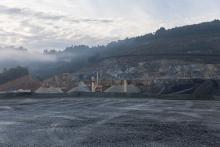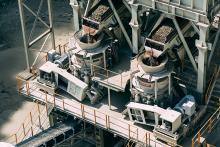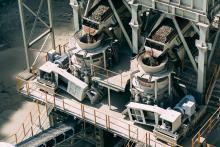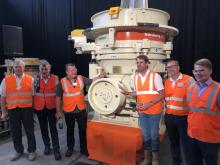
To be successful in the aggregates production industry, it’s important to keep your cost per tonne down, enabling you to start profiting from a return on your investment in new plant sooner rather than later.
As such, Emipesa’s decision to acquire an MX3 cone crusher from Metso as part of an all-Metso state-of-the art production plant at its Cantera el Poyo Quarry near Teruel, in Aragón, Eastern Spain, looks like being a shrewd one. The quartzite aggregate and ballast products producer said the cutting-edge unit, which began crushing rock in August 2019, is set to generate the company an extra €350,000 a year in sales thanks to its greater production volumes, partly as a result of increased uptime compared to its predecessor.
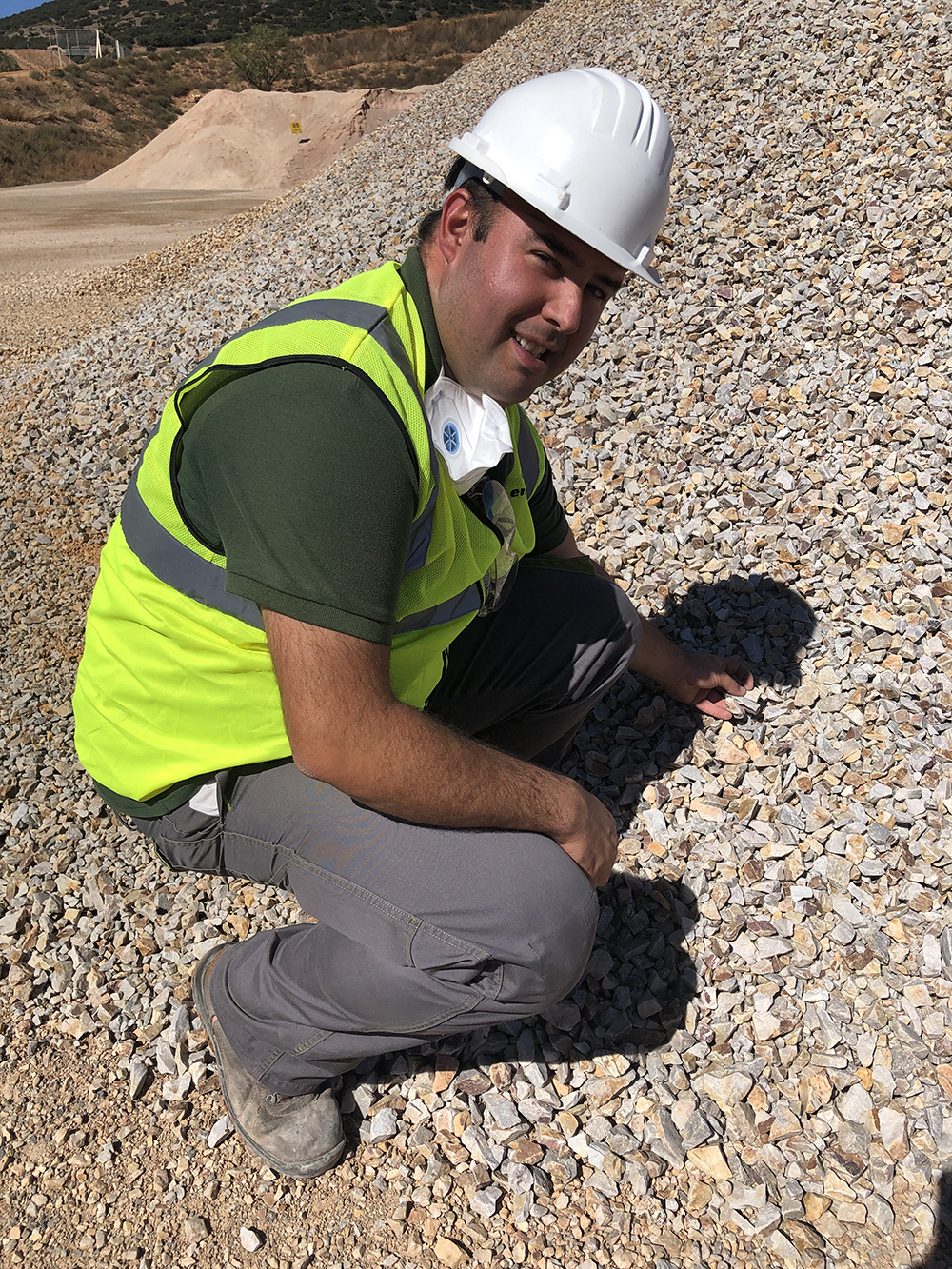
“Before we installed and began operating the MX3 we were having to stop the crusher every hour and a half to adjust its production settings, given the abrasiveness of our quartzite aggregates. Each time we stopped we lost 15 minutes of production time. Over the course of a day, that equates to around 75 to 90 minutes of downtime,” said Pablo Perales, Emipesa aggregates manager, during Aggregates Business magazine’s September visit to Cantera el Poyo Quarry.
“With the MX3 we don’t have to stop production and can also process more material, over 215 tonnes a day more. It produces less sharp and good quality product. Our quartzite used to have a Los Angeles abrasiveness rating of 15-16, but that’s down to 13-14 after processing with the MX3. That’s a big difference and means our aggregates can be considered for use in a wider variety of construction works. I’m also very happy with the production capacity of the crusher.
“Most quarries in this region produce limestone. There is only one more quarry other than this that is producing hardstone aggregate. That gives us a commercial advantage.”
Launched at the bauma 2019 exhibition in Munich, Germany, the MX3 420 tonnes per hour capacity multi-action cone crusher is the ‘little brother’ of the up to 600tonnes and hour MX4, released in 2017.
MX multi-action technology enables cost-effective and safe operations with a high reduction ratio, great product shape and consistency, all of which are critical in aggregate applications. The patented technology enables higher uptime and savings in the operational costs of crushing operations. With the selective production features the MX solution offers, crusher production can be optimised to maximise the yield of desired fractions. Crusher operations are said to have been made easy and safe with advanced Metso IC series automation.
With a 420tonnes/hour material processing capacity, the Metso MX3 is suitable for secondary, tertiary and quaternary crushing stages. Designed for both hard and soft rock applications, the new Metso MX3 has been initially made available for stationary solutions.
Working alongside the MX3 cone crusher in the ultra-modern Metso plant set-up at Cantera el Poyo Quarry is a C125 jaw crusher, an HP300 cone crusher and a CVB2060 screen. Two thirds of the quartzite aggregate product produced at the site is subsequently used in concrete and asphalt for regional construction and highway infrastructure works, with the final third turned into ballast for national and regional railway projects.
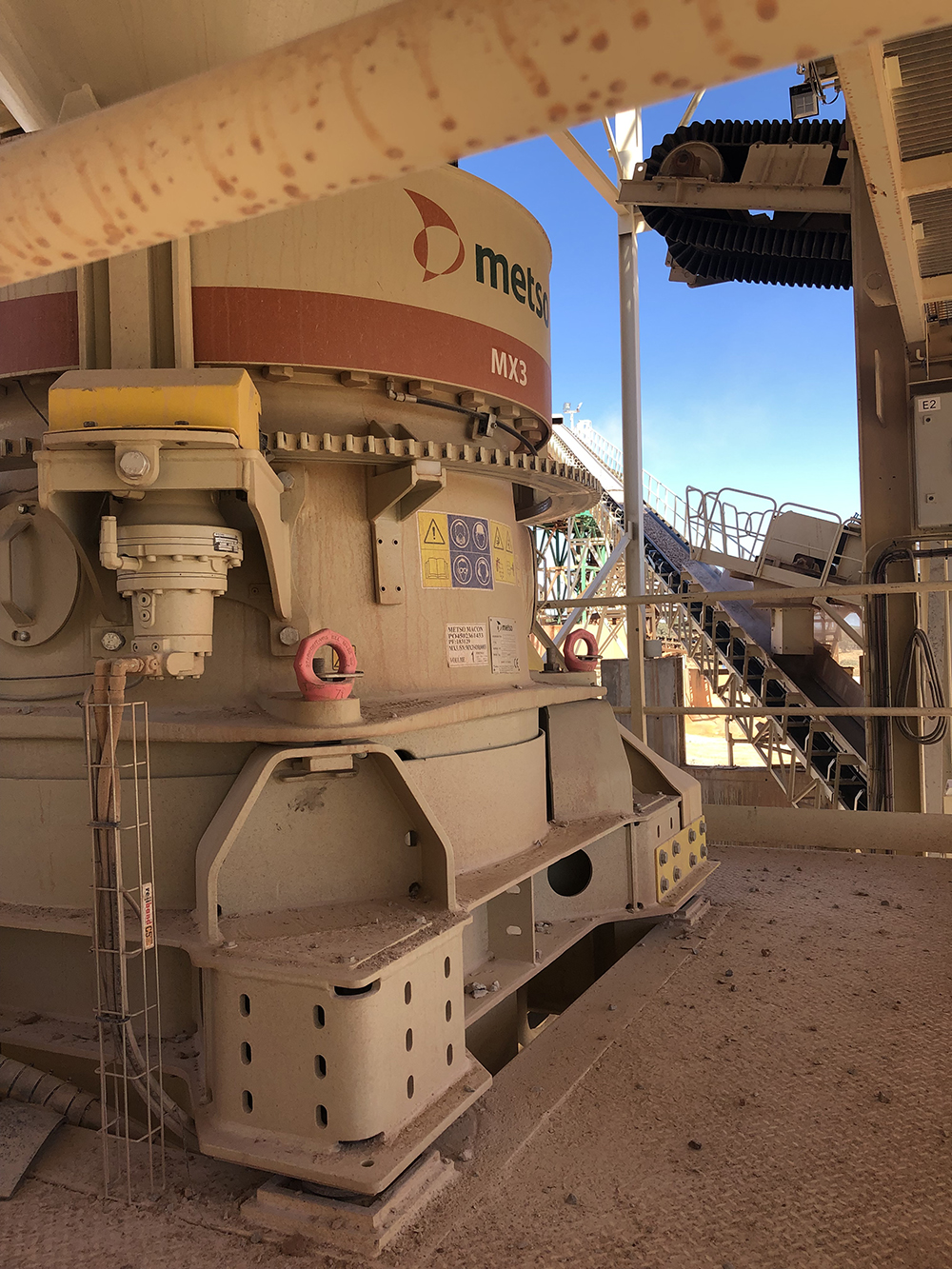
Spain has the biggest high-speed rail network in Europe, and the second biggest globally. Among major high-speed rail links are the 600km Barcelona-Madrid route and the 600km Madrid-Seville rail link. Such scale creates huge demand for ballast and attractive commercial opportunities for ballast suppliers, including Emipesa.
As such, its unsurprising that ballast and 5mm-10mm grade aggregate are the quarry’s core products. However, there is also customer demand for 4mm-12mm, 6mm-12mm, 12mm-20mm, 20mm-32mm and 33mm-63mm aggregate products. Emipesa’s aggregates sells for €9 a tonne, with the Cantera el Poyo site producing between 2,000 and 2,200 tonnes of aggregates a day.
A Barmac B8100 VSI (vertical shaft impactor) and HP200 cone crusher, currently situated a short distance away from the new plant set-up, used for 0mm-4mm manufactured sand production and aggregates fines processing is due to be integrated within the modern Metso plant set-up this winter.
Production at Cantera el Poyo runs Monday to Friday 7am to 6.30pm Monday to Friday nine months of each year, with the site closed in August and in January and February, when temperatures in Aragon falling to as low as -15C. During these months, the 20-plus workers at Cantera el Poyo work at Emipesa’s two other (limestone) quarries in Eastern Spain and carry out maintenance on the Cantera el Poyo Quarry fleet.
“The new Metso plant project was born in 2011. Its design is based on our experience of working with the speciality rock we have and the latest Metso plant technology,” said Perales. “It is a completely tailor-made plant, with all my thinking and wishes are covered in it, such as good plant access, the height of the conveyors and ease of transporting aggregate products around the site. Metso fully supported us as we were making our choices.”
The new Metso plant is controlled by iPad or smartphone-controlled software co-designed by Emipesa and Talleres Rάpidos, a software design firm based in Teruel. This allows Perales and his colleagues to monitor production very closely and easily adjust throughput speeds and levels to cater for changing demand. It also enables a swifter response to any production problems.
A few hours after visiting Cantera el Poyo Quarry, my Metso hosts and I met up with Carlos Pérez, managing director (MD) of Emipesa, in the stunning town of Teruel to learn more about the company’s investment in the MX3 and other Metso equipment.
“We have gained more production capacity than we expected from the MX3. It’s been trouble free and produces a good quality final product,” said Pérez. “I had rung up Metso and requested a cone crusher that was easy to adjust without stopping production. After a couple of months of conversations, they said they had a prototype MX3 that they could give me to try. I liked its Multi-Action technology, with the automated piston and rotating bowl. We established a mutual trust that the machine would work. It did, so I bought one.”
Emipesa’s MD said the MX3 purchase and new Cantera el Poyo Quarry plant set-up has evolved from an initial decision to take advantage of the slowdown in quarry equipment sales in Spain in 2011, due to the country’s economic crisis, to get good deals on buying a wide variety of Metso machinery.
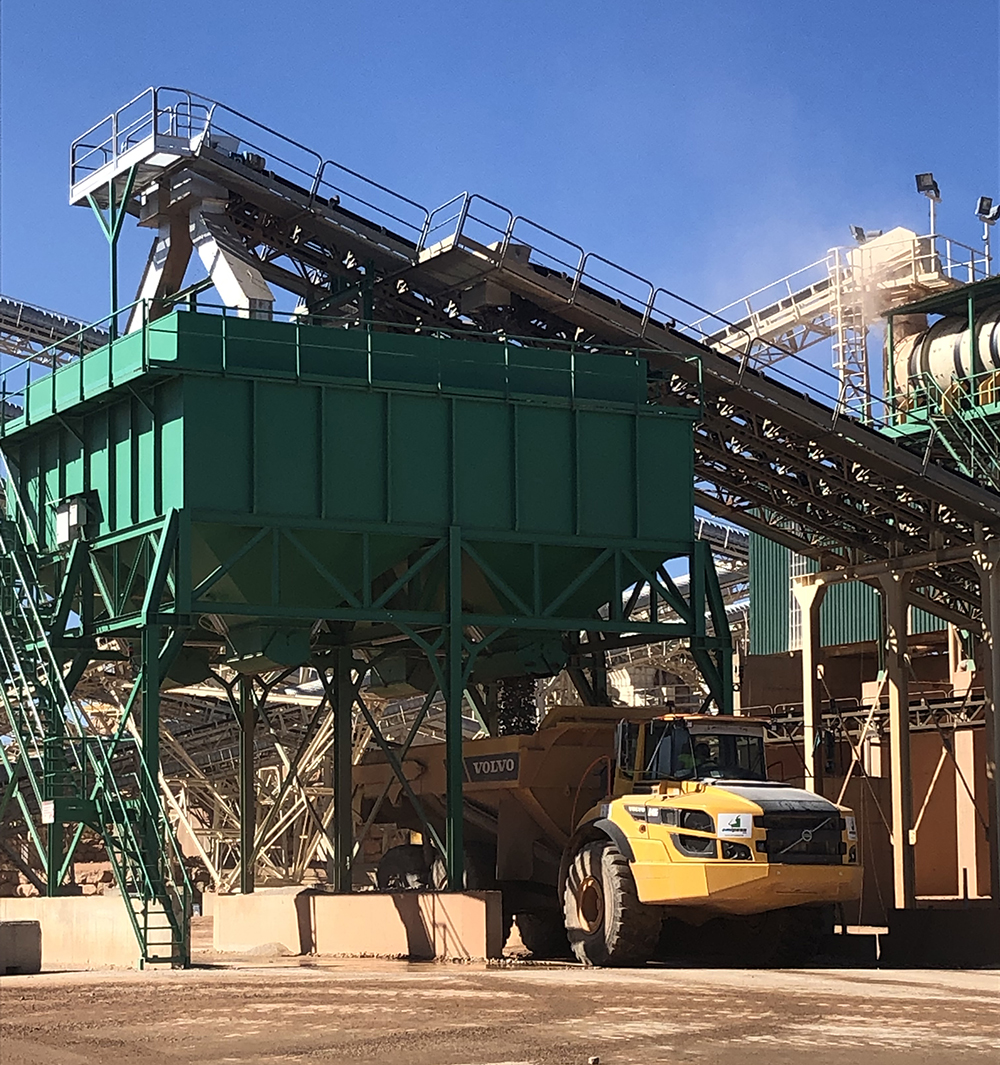
Two years later, the company landed a big contract to produce aggregates to be used in asphalt by a contractor working on a Zaragoza-Soria highway project.
“At that point, we bought an HP200 cone crusher to work on the project. Then, in 2014, we bought an HP300 to work as a secondary crusher.”
Giving an example of the close working relationship between Emipesa and Metso over the past eight years, Pérez said: “We found that the liners on the HP200 needed replacing too often. Metso people in Mâcon (Metso France SAS) studied our rock and suggested we slowed down our production speed from 850rpm to 700rpm. This has helped increase material throughput and the life of the liners to around 180-190 hours.
“Overall, we have invested in our machines in a prudent way. When we integrate our Barmac VSI and HP 200cone crusher within our new Metso plant, we will also be able to recover a lot more waste material that we can turn into commercial products.”

